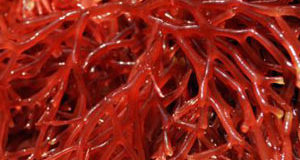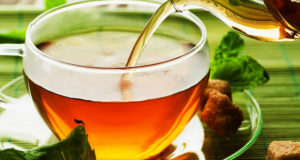
Nutrition in the elderly is something I am growing to be concerned with as I get older, especially as it relates to brain fitness.
Never heard of neurogenesis or neuroplasticity? You want to take care of your brain. I counsel folks about the impact of poor nutritional habits on their behavior.
I have looked for a magic bullet, the miracle supplement that would fight off disease and keep me young and vital, and counteract some of my nutritional excesses, like my difficulty in giving up processed foods. Gotta have that hamburger helper.
However in the last couple of years I have seen my mother-in-law and one of my wife’s aunts, who are not much older than I am face serious health challenges, which is a sobering experience.
I am watching dear friends my age put their lives on hold to take care of aging parents.
Julie and I have talked about what would happen if her parents were ill and needed to move out of their house.
So the issue of staying well is with us all the time, and I am looking to make changes in how I take care of getting my body the building blocks it needs to sustain wellness, which means vitamins, minerals, fiber, phytochemicals, glyconutrients, omega 3 fatty acid, etc., all those things we need to ward of disease and chronic illness.
I have always been good about exercise, and I have been much improved on the vegetable front for the last several years, and this spring we planted a bit of a garden, including four tomato plants which produced many more tomatoes than we could use, so even though I do not really like tomatoes, I juiced some with celery from our garden, and carrots, and I really liked the result, even felt a little better.
So now I am moving towards using my veg-o-matic to make some juices for my immune system and my brain fitness.
I would like to age like Jim Ward who finished the Ironman triathalon when he was 74.
At any rate, about a year ago, I saw a book advertised called The Brain That Changes Itself by Norman Doidge,MD, and he interviewed researchers who were making astounding discoveries about our brains, and what they are capable of across the life span.
It turns out that our brains grow new neurons everyday, which is called neurogenesis, and our brains are much more plastic than we ever new, which means my brain will reorganize itself in a healthy way each time I learn something new. It will also pare unused neurons and circuits which may not be so healthy, if it pares too many.
It also turns out that neurogenesis and neuroplasticity can be encouraged by attending to what writers in the brain fitness field are calling the pillars of brain fitness.
The pillars of brain fitness are physical activity/exercise, nutrition including omega 3 fatty acid and antioxidants, which you must get from the food for best results, sleep, stress management, and novel learning experience.
So nutrition is an important part of healthy nutrition in the elderly. If I supply my body the tools it needs, it is designed to successfully manage pathogens.
And the next wonderful thing is that healthy nutrition is very important in keeping my brain making wise decisions about its future.
Your lifestyle does not have to include triathalon style workouts or monkish menu’s to enhance neurogenesis and neuroplasticity either.
According to Simon Evans,Ph.D. and Paul Burghardt,Ph.D., who are the authors of Brainfit for Life the exercise level required for brain fitness can be done at home by increasing the amount of physical activity that you do, like the model that 88 year old Bill and 82 year old Pat use. No expensive club membership nor do you need equipment any more sophisticated than an exercise ball and/or a couple of small dumbbells.
Evans and Burghardt to into some detail about micro and macro nutrients that we need from our food.
The big thing to remember is that brain, heart, and immune system food must be natural, preferably grown nearby.
No more processed food, which is engineered for long shelf life, not nutrition.
I have always been a smoothie maker, and I am going to become much more of a juicer, having created some great tomato and carrot and celery recipes from our garden this year.
And since I have read Evans and Burghardt I have been taking my omega 3 fatty acid. What I have noticed from that is an improvement in my attention, and a balancing of my mood.
I take a supplement because getting the fish which are best for omega 3 fatty acid is expensive, and perhaps full of mercury, so a supplement, if it is refined to get the mercury out, is cheaper and more efficient. Cooking fish takes a bit more time than I want to put in.
The next pillars of brain fitness that Burghardt and Evans talk about are sleep and stress management. I have used a stress management and relaxation tool personally and taught it to my clients called HeartMath, which teaches me to change the chemistry in my body from adrenalin and cortisol to DHEA (the antiaging hormone) in a heart beat. Remember that my thought about an event brings my stress chemistry, and too frequent stress responses, or stress responses that last too long kill those new brain cells. Use HeartMath to keep the stress response available for its intended use. Otherwise, keep cool for brain fitness.
According to Evans and Burghardt important activities happen in our brains during sleep. That is when the brain makes decisions about keeping or paring newly created neuroplastic connections. If that paring or consolidation is not done efficiently, we will pay an attentional price.
The novel learning experiences most frequently touted by the brain fitness writers is learning a new language or learning a new instrument because those activities provide increasing levels of challenge and complexity for encouraging neuroplasticity.
However recently published research, to be exact, the IMPACT study has demonstrated the validity and reliability of one of the commercially available brain fitness programs, the Posit Science Brain Fitness Program. Call it brain nutrition in the elderly.
Both the participants, all older than 65, and over 500 of them, and the researchers reported surprise at what they discovered.
Since I do not have time to learn a new language, or practice a new instrument, I am using the Posit Science program, and it has made a very nice improvement in my word recall process.
And now I am off to the grocery store to get carrots and celery for a refreshing tonic.

Source by Mike Logan
Professionals warn about online buying of medications from China
 Vitamin Agent The Health & Naturalistic Source
Vitamin Agent The Health & Naturalistic Source





